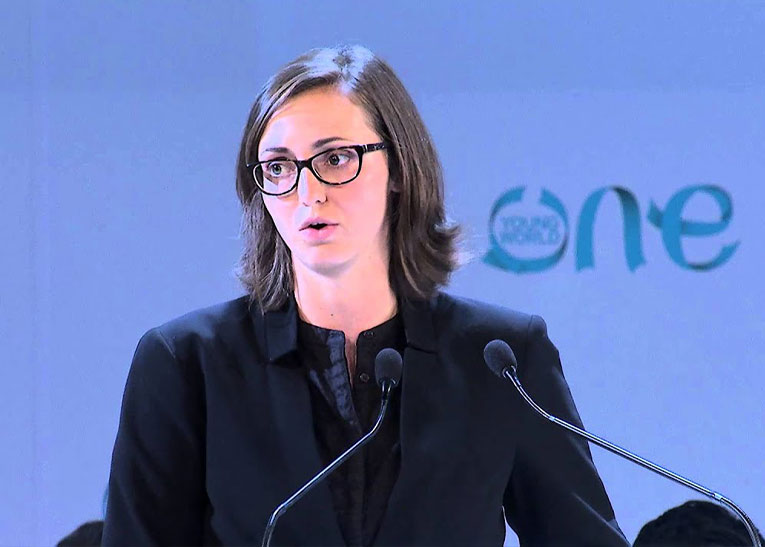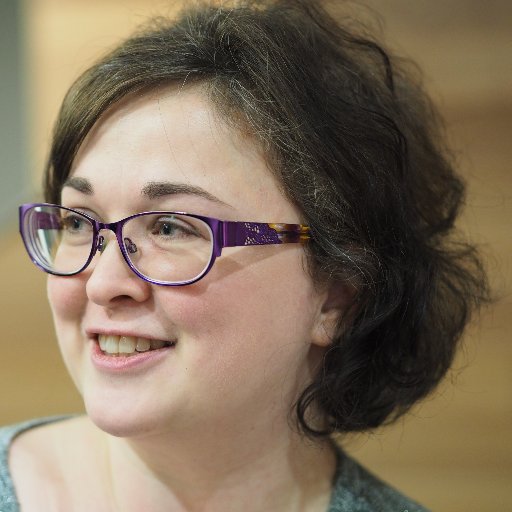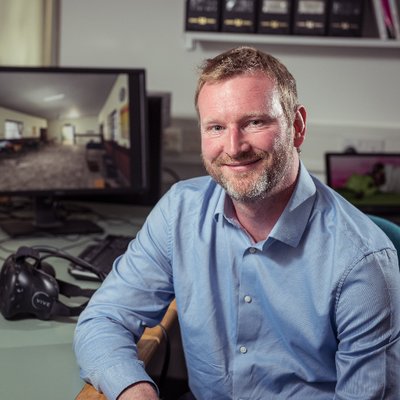University of Oxford

Introduction to Computational Health Informatics
Computational Health Informatics (or CHI) laboratory based at Institute of Biomedical Engineering, Oxford, UK.
CHI Lab focuses on “AI in healthcare”, sometimes known as Clinical AI, and exists at the interface between machine learning and health informatics. Members of the lab share a common interest in deep learning, Bayesian inference, and related methods. CHI lab has access to some of the world’s largest, curated, anonymised healthcare datasets, and includes work with wearables and hospital data, across scales from the massively multivariate (including anonymised genomics) to the high-rate data acquired from medical devices.
Systems developed as a result of our collaborative work are routinely used in the care of patients within the UK National Health Service, and for improving access to healthcare in the developing world. Clinical collaboration is at the heart of each of our projects, with biomedical engineers working alongside clinical colleagues, which ensures that each project feeds directly into the care of patients.

Team of CHI lab
About
Prof. David Clifton
David Clifton is Professor of Clinical Machine Learning in the Department of Engineering Science of the University of Oxford. He is a Research Fellow of the Royal Academy of Engineering and leads the Computational Health Informatics (CHI) Laboratory, which focuses on creating healthcare interventions based on AI. Prof. Clifton trained in information engineering at the same department; his research focuses on the development of machine learning for tracking the health of complex systems, with an emphasis on healthcare technologies that are deployed within the UK National Health Service. Prof. Clifton’s research has been awarded 26 scholarships and prizes, including a Grand Challenge award from the UK Engineering and Physical Sciences Research Council, which is a personal award that provides long-term strategic support for nine “future leaders in healthcare”. In 2018, his lab of 27 researchers opened a second site in China, with support from the Chinese government. His research was awarded the overall inaugural Vice-Chancellor’s Innovation Award in 2018 which aims to recognise leading interdisciplinary research across the entirety of Oxford University. In 2019, the Wellcome Trust’s first International Flagship Centre opened, joining Prof. Clifton’s Oxford-based lab to the Oxford University Clinical Research Unit in Ho Chi Minh City, Vietnam, with a focus on translating healthcare technologies into resource-constrained settings.
Publications
David has published more than 200 articles in international peer-reviewed journals.
Link Google Scholar: https://scholar.google.com/citations?user=mFN2KJ4AAAAJ&hl=en&oi=ao
Link ResearchGate: https://www.researchgate.net/profile/David_Clifton
Key recent research articles:
- Abebe G, Zhu T, Prince J, Javed H, Kiyasseh D, Clifton D, Thwaites, Louise, Yen L, Le Van T,& van Doorn, HR, Le Nguyen Thanh N, Hung N, Truong K, Quang P, Tran D, Duong H, Hao N. (2020). Severity Detection Tool for Patients with Infectious Disease. Healthcare Technology Letters. doi: 10.1049/htl.2019.0030.
- Hoang MTV, Nguyen TA, Tran TT, Vu TTH, Le NTN, Nguyen THN, Le THN, Nguyen TTH, Nguyen TH, Le NTN, Truong HK, Du TQ, Ha MT, Ho LV, Do CV, Nguyen TN, Nguyen TMT, Sabanathan S, Phan TQ, Nguyen Van VC, Thwaites GE, Wills B, Thwaites CL, Le VT, van Doorn HR. Clinical and aetiological study of hand, foot and mouth disease in southern Vietnam, 2013-2015: Inpatients and outpatients. Int J Infect Dis. 2019 Mar;80:1-9. doi: 10.1016/j.ijid.2018.12.004. Epub 2018 Dec 11
- Anh NT, Nhu LNT, Van HMT, Hong NTT, Thanh TT, Hang VTT, Ny NTH, Nguyet LA, Phuong TTL, Nhan LNT, Hung NT, Khanh TH, Tuan HM, Viet HL, Nam NT, Viet DC, Qui PT, Wills B, Sabanathan S, Chau NVV, Thwaites L, Rogier van Doorn H, Thwaites G, Rabaa MA, Van Tan L. Emerging Coxsackievirus A6 Causing Hand, Foot and Mouth Disease, Vietnam. Emerg Infect Dis. 2018 Apr;24(4):654-662. doi: 10.3201/eid2404.171298
- Geoghegan JL, Tan le V, Kühnert D, Halpin RA, Lin X, Simenauer A, Akopov A, Das SR, Stockwell TB, Shrivastava S, Ngoc NM, Uyen le TT, Tuyen NT, Thanh TT, Hang VT, Qui PT, Hung NT, Khanh TH, Thinh le Q, Nhan le NT, Van HM, Viet do C, Tuan HM, Viet HL, Hien TT, Chau NV, Thwaites G, Grenfell BT, Stadler T, Wentworth DE, Holmes EC, Van Doorn HR. Phylodynamics of Enterovirus A71-Associated Hand, Foot, and Mouth Disease in Viet Nam. J Virol. 2015 Sep;89(17):8871-9. doi: 10.1128/JVI.00706-15. Epub 2015 Jun 17.
About
Dr. Heloise Greeff
Heloïse undertook her DPhil in the Computation Health Informatics (CHI) Lab in the Department of Engineering Science at the University of Oxford. Prior to her DPhil, Heloïse completed an MSc in Biomedical Engineering and her MBA at the Saïd Business School, both funded by a highly selective Rhodes Scholarship at the University of Oxford. Her DPhil was the first doctoral studentship to be sponsored by the charity UNICEF.
Heloïse’s work focuses on “AI for social good”, with exemplar applications in improving access to water in low-income settings, such as rural Africa and Bangladesh. Her work has included constructing the algorithms that are embedded within the “Smart Handpump” system, in which monitoring systems (based on the electronics within mobile smartphones) are installed within the handles of water pumps, for use in rural areas of resource-constrained countries. Her research has resulted in two filed patents, and the creation of “Fundifix”, a not-for-profit spin-out company in rural Kenya that acts on the alerts from the Smart Handpumps, using Heloise’s predictive health-monitoring algorithms, to perform maintenance on the pump before it breaks – this is essential, because rural villages typically depend on a single handpump for their water, and otherwise have to use unsafe water sources (such as ponds and rivers). Heloïse’s work on the Innovations project will apply machine learning to innovations in intensive healthcare settings.
Publications
Heloïse has published a number of articles in international peer-reviewed journals.
Link Google scholar: https://scholar.google.com/citations?user=Yq61sEMAAAAJ&hl=en&oi=ao
Link researchgate: https://www.researchgate.net/profile/Heloise_Greeff
Key recent research articles:
- Greeff H, Manandhar A, Thomson P, Hope R, Clifton D. “Distributed Inference Condition Monitoring System for Rural Infrastructure in the Developing World”. IEEE Sensors Journal. 2018 19(5):1820-1828. https://doi.org/10.1109/JSEN.2018.2882866
- Colchester FE, Greeff Marais H, Thomson P, Hope R, Clifton, DA. “Accidental infrastructure for groundwater monitoring in Africa”. Environmental Modelling & Software, 2017(91): 241-250. https://doi.org/10.1016/j.envsoft.2017.01.026
About
Corinne Prescott
Corinne joined the Computational Health informatics (CHI) Lab, and the Innovations project, in January 2020. Corinne brings nearly two decades of research administration and management experience to her role. She previously managed research teams in the Medical Sciences Division at the University of Oxford, and prior to this her roles encompassed research co-ordination and administration, personal assistance, human resources and training. Many years ago, she gained experience as a graduate researcher working in detection of ultra-high risk and first episode psychosis.
About
Dr. Tingting Zhu
Dr Zhu obtained her DPhil in Engineering at Oxford University. As a faculty member at the Department of Engineering Science, Dr Zhu is a RAEng Engineering for Development Research Fellow. She is an Associate Research Fellow at St Hilda’s College and a Stipendiary Lecturer in Engineering at Mansfield College, Oxford.
Dr Zhu’s research interests lie in machine learning for healthcare applications and she has developed probabilistic techniques for reasoning about time-series medical data. Her work involves the development of machine learning for understanding complex patient data, with an emphasis on Bayesian inference, deep learning, and applications involving the developing world.
Google Scholar profile: https://scholar.google.co.uk/citations?user=fjGMIl0AAAAJ&hl=en
Research Gate Profile: https://www.researchgate.net/profile/Tingting-Zhu-13
About
Dr. Jannis Hagenah
Jannis Hagenah is a Postdoctoral Research Fellow at the University of Oxford working in the field of Artificial Intelligence in Medicine. Before that, he was a research associate at the Institute for Robotics and Cognitive Systems, University of Lübeck, Germany, where he worked on his doctoral thesis under the supervision of Prof. Floris Ernst. He received a B.Sc. and M.Sc. in Medical Engineering Science, both from the University of Lübeck. During his studies, he worked at the Xi’an Jiaotong University, PR China, and Dräger, Germany.
The focus of his research lies on the development of Machine Learning methods in the medical domain. He is interested in representation learning, data synthesis, causal inference and deep learning on small, uncertain data. His methods were applied in a variety of tasks, ranging from medical image analysis and computer aided interventions to medical robotics, intelligent sensor analysis, and industrial robotics. Besides his research, Jannis is highly interested in sharing his knowledge and expertise in the scope of courses, tutorials, and seminars on Machine Learning and Artificial Intelligence.
About
Dr. Shadi Ghiasi
Shadi obtained her DPhil degree from the Information Engineering Department of the University of Pisa, Italy under the Marie Curie research fellowship of Horizon 2020 (the AffecTech project). During her doctoral study, she has been a visiting researcher fellow in the Department of Computer Science of the University of Oxford. The focus of her doctoral research was devising signal processing methodologies for quantifying physiological sensor data and adapting machine learning algorithms to assess mental health disorders. Shadi joined the CHI lab as a postdoctoral researcher to develop health care technologies in low and middle-income countries.
About
Dr. Ping Lu
Ping Lu obtained a PhD in Biomedical Engineering from the University of Bern, Switzerland, focusing on advanced medical image analysis of the human facial nerve. She employed machine learning technologies to improve cochlear implantation image-guided planning.
Ping Lu has been a Postdoctoral Researcher in the Institute of Biomedical Engineering at the University of Oxford since 2018. Currently working with Prof. David Clifton, Ping collaborates with clinicians in Vietnam to develop deep learning innovations in life-threatening infectious diseases. This involves using time-series sensor data analysis in limited-resource settings in low and middle-income countries. Before that, she worked on the SmartHeart project and developed spatio-temporal convolutional networks for cardiac motion estimation and regional analysis of LV function; to characterize differences between healthy and diseased hearts.
Ping’s research interests are in cardiovascular imaging, deep learning applied to healthcare, biomedical imaging, image analysis and signal processing in cardiac electrophysiology.
Introduction to OHSCAR
The Oxford Health Systems Research Collaboration (OHSCAR) is working towards strengthening Health Systems Research with low and middle income country collaborators. It aims to enable scientists from Oxford to create new knowledge with LMIC colleagues and build capacity in global health systems research while promoting the bi-directional transfer of knowledge between Oxford and LMIC.
Health systems strengthening is key to achieving the new UN Sustainable Development Goals through universal coverage with high quality health care. The Oxford Health Systems Collaboration (OHSCAR) is an Oxford based group led by Professor Mike English together with Dr Chris Paton and Dr Jake McKnight. The team have particular expertise in multidisciplinary research often focused on the neglected challenge of improving the performance of district hospital level services that support newborn and child health. Examples of work include: developing a long-term ‘learning health system’ approach with Kenyan hospitals to improve quality of care; examining effective coverage of neonatal care and the particularly important and neglected role of nurses: leadership and management; and the emergence of and challenges with electronic health records and the potential of mHealth based training tools (LIFE).

Team of OHSCAR
About
Dr. Chris Paton
Dr Chris Paton is the Head of the Global Health Informatics Group at the University of Oxford. His research group investigates how new digital health technologies such as electronic health records (EHRs), mHealth apps, and new machine learning techniques can be used to improve healthcare.
Following his training as a medical doctor in the UK, he moved into Clinical Informatics and worked as a Senior Research Fellow at the National Institute for Health Innovation in New Zealand before returning to the UK to join the University of Oxford. He received his Fellowship of the UK Faculty of Clinical Informatics in 2018 and became an Official Fellow of Parks College, Oxford in 2019.
He is the Principal Investigator for the LIFE (Life-saving Instruction for Emergencies) project. LIFE is a smartphone-based simulation training platform that uses a virtual hospital environment to simulate medical emergencies to train healthcare workers. Launched in April 2019, LIFE has now been downloaded by thousands of healthcare workers in Africa and Dr Paton is now leading a clinical trial of the platform in Kenya funded by GCRF. See here for a BBC interview about the project.
Dr Paton collaborates on several large-scale international projects including NEST360, a £50 million initiative that aims to deliver new technologies and training to improve neonatal care in Africa and a new Wellcome Trust Innovation Flagship in Vietnam that will develop and implement a range of new AI-based monitoring devices in intensive care units (ICUs) in South-East Asia.
He currently supervises 3 DPhil students at the University of Oxford with Professor Niall Winters in the Department of Education and Professor Mike English at the Nuffield Department of Medicine. He also lectures and supervises students for the MSc in International Health and Tropical Medicine.
Dr Paton has served as a digital health consultant the New Zealand Government and the Pathways for Prosperity Commission. He co-founded and chaired the International Medical Informatics Association (IMIA) social media working group and is currently co-chair of the IMIA open source working group. He is Associate Editor of “Digital Health Journal” (Sage Publishing) and “BMC: Medical Informatics and Decision Making”. He is a peer reviewer on digital health topics for scientific journals including Nature, PLOS One, JAMIA, JMIR, ANZJPH and serves as an expert grant reviewer for the UK’s Medical Research Council, the Research Council of Norway. He is also the Founder and Editor of the Health Informatics Forum, an online professional learning community that offers free courses, seminars and online discussion with a membership of over 11,000 health informatics professionals around the world.
About
Dr. Jacob McKnight
Jacob McKnight is a post-doctoral researcher with an interest in health systems and reform. After working for Medecins Sans Frontieres, he completed a PhD at Said Business School focused on hospital management in Ethiopia. He used organisational and marketing theory to provide new perspectives on public health problems.
Jacob leads the ethnographic element of the Health Services that Deliver for Newborns (HSD-N) study. He also co-leads an ESRC-funded project that seeks to understand Infection Prevention and Control practices in Kenya and the response to the threat of Anti-Microbial Resistance (AMR). Jacob is also Principle Investigator on a Gates-funded project that is seeking to build an app that helps Kenyans locate better, cheaper lab services.
About
Prof. Mike English
Mike English is a UK trained paediatrician who has worked in Kenya for over 20 years supported by a series of Wellcome fellowships. His work often takes Child and Newborn Health as a focus but increasingly tackles health services or wider health systems issues. He works as part of the KEMRI-Wellcome Trust Research Programme (KWTRP) in collaboration in Kenya with the Ministry of Health and a wide set of national and international collaborators. His work focuses predominantly on improving care in African District Hospitals.
The work of his team spans: clinical epidemiology (including develloping national, evidence-based guidelines for care of severely ill children and newborns, clinical trials and observational studies); implementation research (including cluster randomised trials and mixed methods research), and health systems research (qualitative studies of health worker and managers’ behaviour and rethinking the health workforce). He co-leads Health Systems Research in KWTRP and established the Oxford Health Systems Research Collaboration (OHSCAR). Recently Mike helped establish a team focused on delivering simulation based training using gamification through mobile phones and virtual reality (https://oxlifeproject.org/).
Mike’s 2013-2018 fellowship initiated the Kenyan Clinical Information Network (CIN). Working with 15 hospitals and focused on generating high quality routine data the CIN is exploring how to improve hospital care at scale while using aggregate data to trial feedback interventions and understand practice variation. Other major current work includes a 4.5 year project on how to improve health care provision for sick newborns, work that spans measuring effective coverage and multiple methodological approaches to inform thinking on the challenges of delivering effective nursing care and possible task-shifting.
Mike frequently provides advice to the Kenyan government and WHO on a range of issues related to child and newborn survival and health systems performance and is a member of the Lancet Global Health Commission on High Quality Health Systems in the SDG Era (https://www.hqsscommission.org/).














